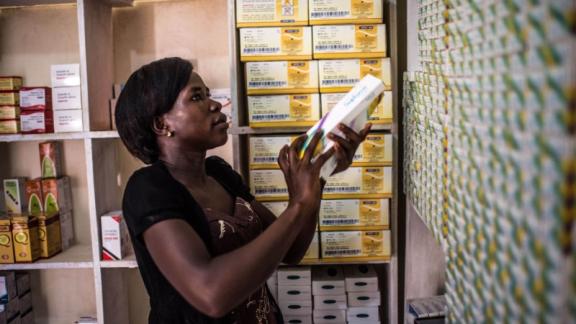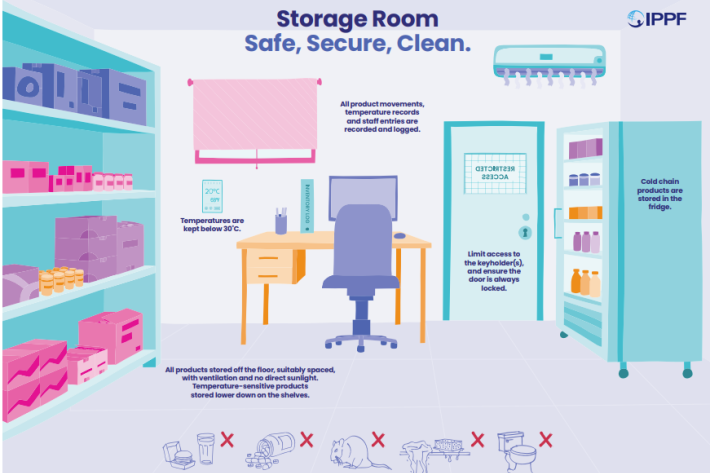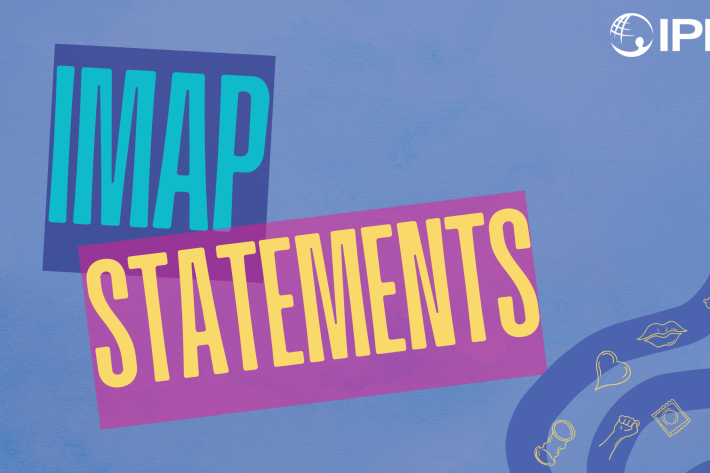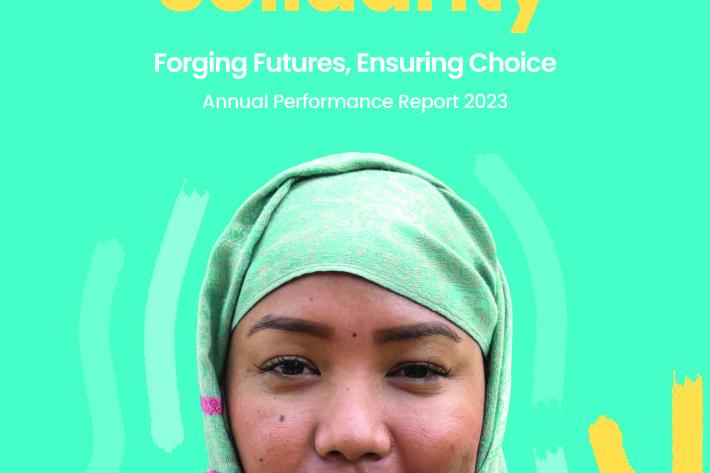Spotlight
A selection of resources from across the Federation
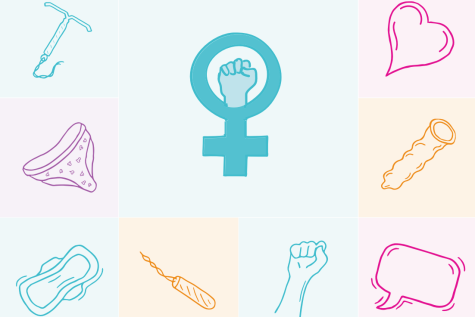
Technical Brief: Designing and Delivering Inclusive, Rights-Based Sexual and Reproductive Healthcare to Transgender and Gender Diverse People
This technical brief outlines key recommendations across several sexual and reproductive health service areas to promote access to inclusive care for transgender and gender diverse people.
Filter our resources by:


| 08 December 2015
Macedonia: Engaging champions and mobilizing civil society for women’s rights
Since 2008, the government of Macedonia has invested millions in an anti-abortion campaign. In 2013, this culminated in a new law restricting women’s access to abortion. The Macedonian IPPF Member Association (XEPA) led civil society advocacy to demand the restoration of women’s right to abortion.
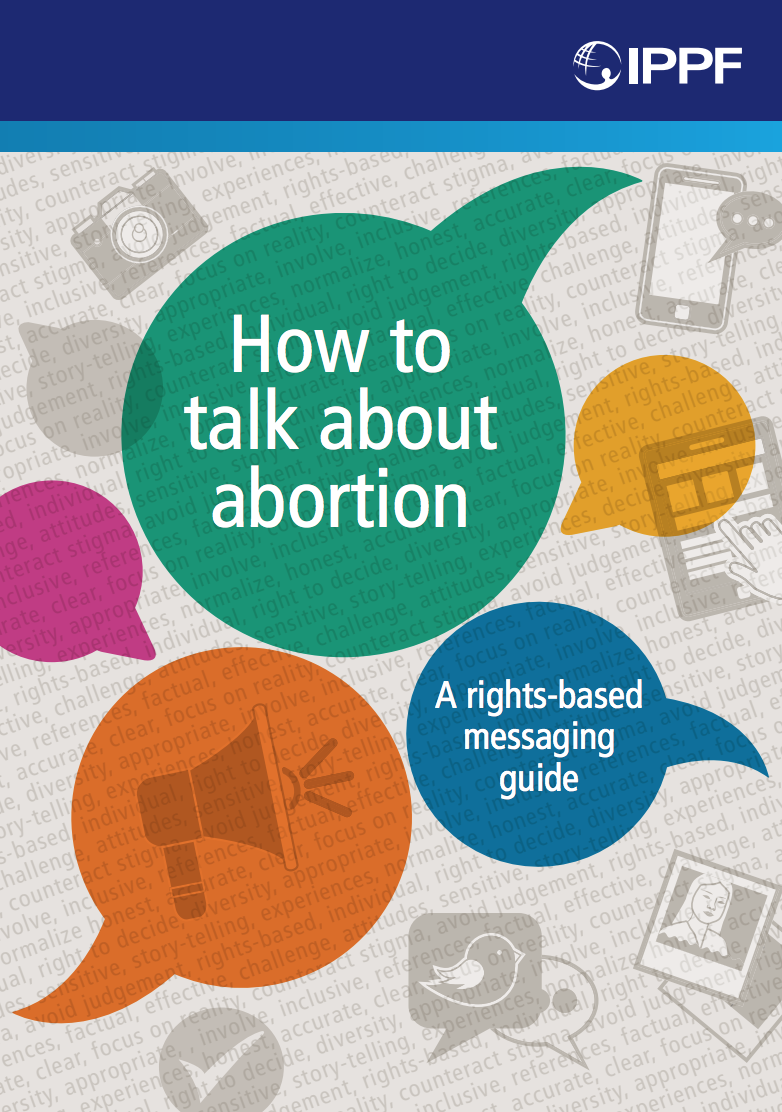
| 20 November 2015
How to talk about abortion: A guide to stigma-free messaging
How to talk about abortion: A guide to stigma-free messaging (updated April 2023) provides useful tips and advice on what to consider when developing materials relating to abortion. The content includes examples of positive, rights-based messages, and how to avoid using stigmatizing language and images. This guide can be used by educators, advocates, programmers, health professionals and policy makers, among others, to help inform the development of a wide range of communication materials. Learn more in this short video (also available in French and Spanish).
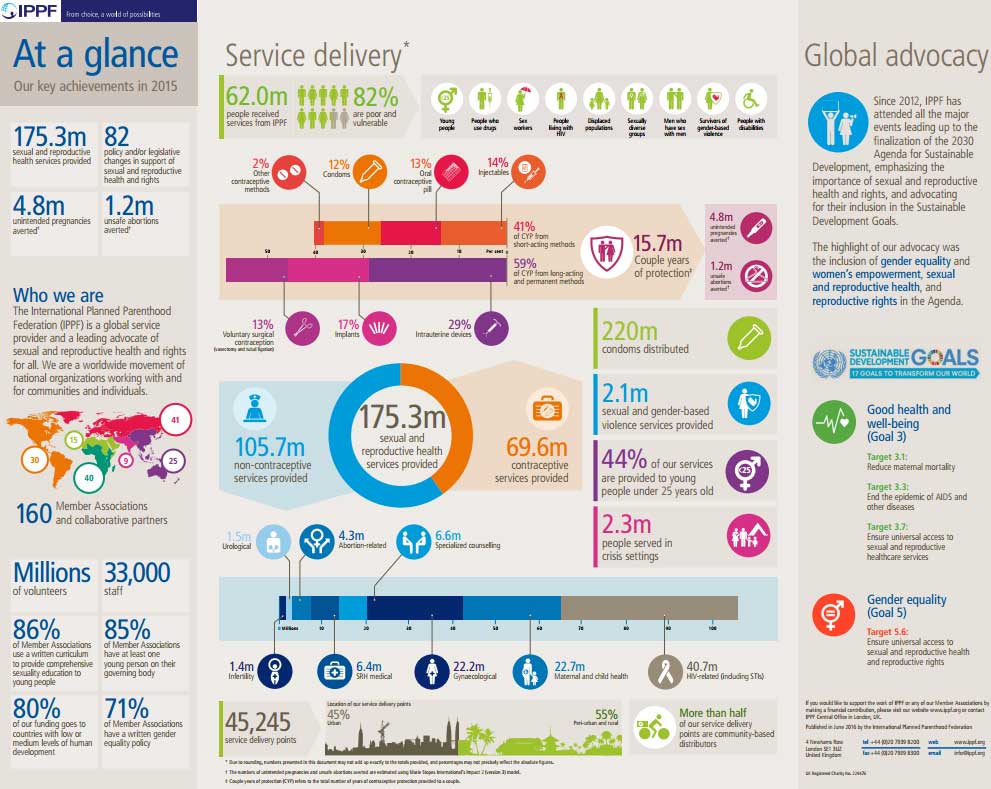
| 10 August 2015
At a Glance 2014
Key facts and figures highlighting IPPF's achievements in 2014.
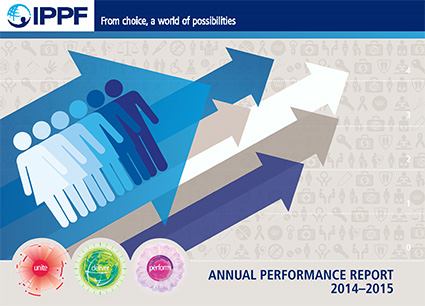
| 30 June 2015
Annual Performance Report 2014-15
2014 was our third year implementing IPPF’s three Change Goals – Unite, Deliver and Perform. We have monitored the trajectory of our growth in performance to date, and are already seeing remarkable success in all three areas, as presented in our Annual Performance Report 2014-2015. Member Associations and collaborative partners in 55 countries contributed to 81 changes in policy or legislation that support or defend sexual and reproductive health and rights. At the regional and global levels, IPPF’s advocacy contributed to 18 changes, of which 12 were advances in safeguarding sexual and reproductive health and rights in the post-2015 development framework. With the delivery of 149.3 million services in 2014, we are on track to achieve our ambitious target of doubling the number of sexual and reproductive health services provided between 2010 and 2015. Over eight in ten clients who accessed services were poor and vulnerable, while almost half of our services went to young people. IPPF’s achievements in 2014 contribute to a strong performance culture where decisions are based on data, organizational learning happens at all levels, technical support is provided to increase effectiveness, and investments are made to support communities most in need.







